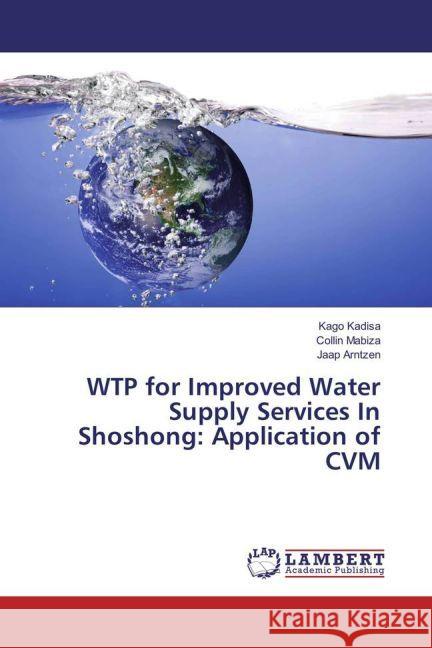WTP for Improved Water Supply Services In Shoshong: Application of CVM » książka
WTP for Improved Water Supply Services In Shoshong: Application of CVM
ISBN-13: 9783659922305 / Angielski / Miękka / 2016 / 84 str.
Developing countries face the mammoth task of providing basic services and infrastructure. Amongst the top services that have proven most difficult to provide is the provision of water supply. Since many rural people are poor, it is usually assumed that rural water supplies must be financed by the government or by its agencies, as was the case with Botswana before the Water Utilities Cooperation (WUC) take over. However, the government has faced difficulties in maintaining the infrastructure and cost recovery measures have failed, thereby affecting service delivery. Governments' efforts to solve water problems have in the past been supply driven. They mostly focused on damming, drilling and diverting water, which proved to be a short term solution. In the long run, the pipes, dams and all infrastructures need maintenances, which most governments fail to carry out owing to financial constraints. To address these problems, the demand side for the value attached to water should be well understood. It is now widely recognised that many rural people can and are willing to pay for improved water supplies and that sustaining and extending services depend on mobilizing their WTP.











